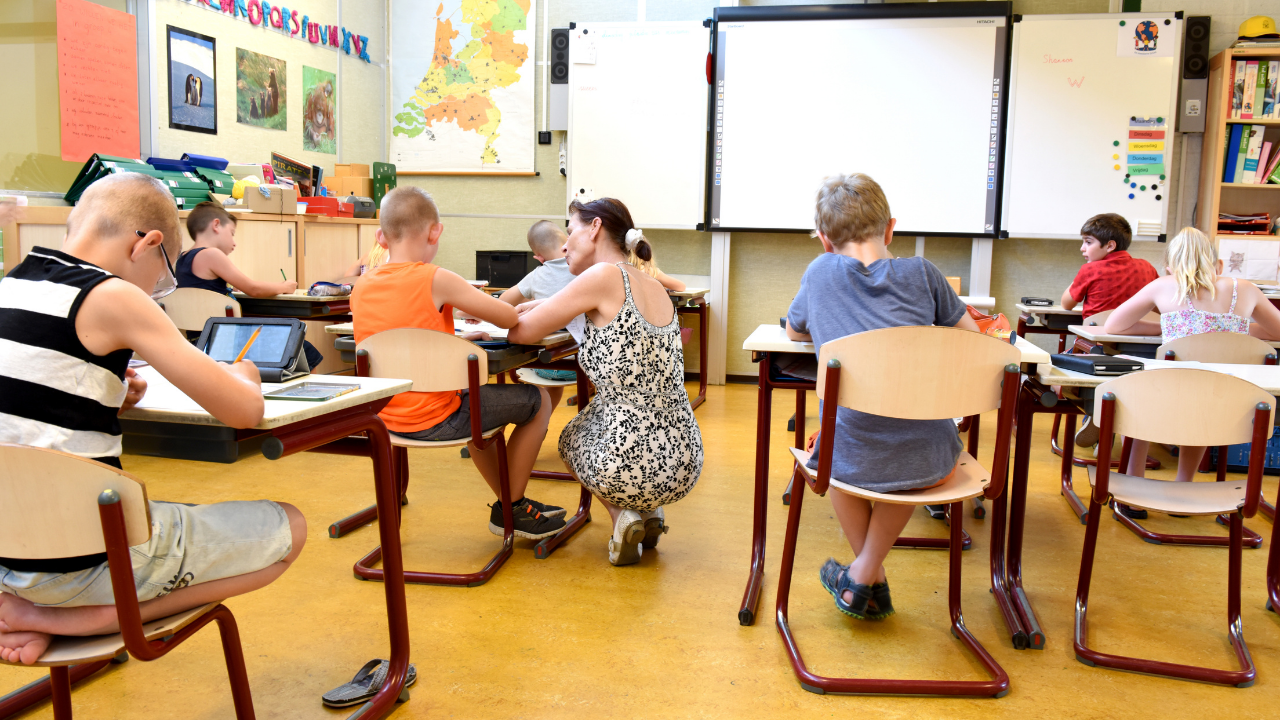3 Effective Classroom Accommodations for Dyslexic Students

We recently had the incredible opportunity to sit down with Sydney Bassard to talk about the link between speech-language and Literacy.
You might know Sydney as The Listening SLP. Sydney is is an ASHA-certified speech-language pathologist. She received both her B.S. in Public Health and her Master of Speech Pathology from the University of South Carolina.
Sydney is licensed in Virginia, South Carolina, and North Carolina. Through her private practice, The Listening SLP, she serves children from birth to 18 and the adult hearing loss population. Her clinical focus areas are working with children who are deaf and hard of hearing and literacy. With a passion for access to high-quality service and care for all, she purposefully invests in each client and their family.
During our conversation with Sydney, we were really taken by her passion and knowledge of the best accommodations for dyslexic students in the classroom. Today, we want to share those with you!
Here are 3 of the Most Effective Accommodations for Dyslexic Students in the Classroom:
Coming from the lens of an SLP (Speech-Language Pathologist), these are the accommodations Sydney finds to be the most effective for children struggling with dyslexia.

1. Preferential Seating
Requesting preferential seating for a dyslexic student is always a good practice.
However, Sydney cautions us to first get to know the classroom, the teacher, and his or her teaching style. What this looks like, will make preferential seating different in each classroom and that is something that will need to be figured out. What might, at first, appear to be the most preferential seating, may not, in fact, be what’s best for the student.
2. FM Systems
This is one of Sydney’s favorite accommodations to recommend, and, it can often be funded!
We all know that classrooms are noisy. There is a lot of background noise, like chatter, furniture movement, air conditioners, and distractions from the hallway. FM systems are a great way to boost and attenuate the sound of the teacher’s voice.
There are personal FMs available. These will appear almost like a hearing aid. The child wears it and it is specific to them.
There are also sound field FMs. These can be put in the classroom and will benefit everyone, not just the child who has dyslexia or a language disorder.
3. Simplifying the Langauge Used to Give Instructions
Sydney points out that sometimes it is hard for students with language disorders to follow long, verbal instructions. They might listen to a list of five things to do, then sit there with a blank look on their face. Often, these students can get into trouble, too, if they don’t immediately jump to the task. Using short directions will help with this.

Another idea that helps to simplify instructions is to develop a non-verbal communication signal between the teacher and student. If the student has questions about the instructions but doesn't want to be singled out, they can do something like move a pencil to the top of their desk. This would let the teacher know that they need clarification or to hear the instructions again.
You should also prompt kids to write everything down. If you are giving instructions, make sure it is written down, not just oral/verbal. We know that our kids with dyslexia are going to have some difficulty with reading it, but having something as a point of reference will help.
Another idea is to pair written instructions with an image or symbol. This will keep everyone in sync and on the same page.
For even more on the link between speech-language and literacy and to hear our full interview with Sydney Bassard, check out our latest episode of the Together in Literacy podcast. If you like what you hear, don’t forget to rate, leave a positive review, and subscribe!
Looking for strategies and resources?
Sign up for our newsletter for news, resources, and freebies delivered straight to your inbox.
We hate SPAM. We will never sell your information, for any reason.
